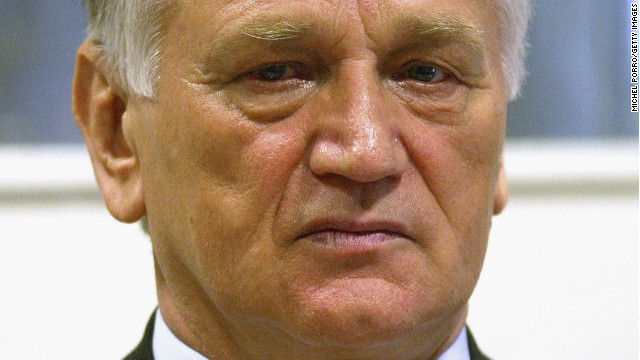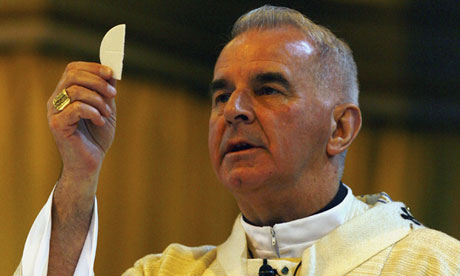By Alexandra Sandacz
Impunity Watch Reporter, Europe
AMSTERDAM, Netherlands – On Thursday, a United Nations appeals court overturned Momcilo Perisic’s, former Yugoslav Army chief, conviction of war crimes. He was originally sentenced to 27 years for aiding and abetting killings in Bosnia and Croatia, including attacks on Sarajevo and Srebrenica.

In a 4 to 1 decision, the judges ruled that Perisic did not order Serbian forces into Bosnia-Herzegovina to commit war crimes. Furthermore, the judges also determined that he was not in a position to discipline soldiers for attacking the Croatian capital, Zagreb.
During Perisic’s trial, the record showed Perisic regularly attended the Supreme Defense Council’s meetings where Slobodan Milosevic, then the Serbian president, and other leaders approved sending weapons, fuel, police officers and military personnel to fight on behalf of the Serbs in Bosnia and Croatia.
However, the appeals judges said that regardless if Perisic knew about the crimes Serb or pro-Serb fighters committed in Bosnia and Croatia, he did not “directly or knowingly assist” in the atrocities, but rather he made decisions to support the war.
The United Nations appeal court ultimately decided that lower court committed an error by not showing that he was “physically present when criminal acts were planned or committed.”
Theodor Meron, president of the appeals chamber in the tribunal in The Hague, stated, “While Mr Perisic may have known of VRS [Serb Army of Republika Srpska, VRS] crimes, the Yugoslav Army aid he facilitated was directed towards the VRS’s general war effort rather than VRS crimes.”
However, this overturned conviction created some concerns. Various lawyers in The Hague said the ruling confused them.
The court’s ruling, which follows other recent acquittals by appeals court judges, can be seen as changing the story line of war. As a consequence, these recent reversals tightened the definition of crimes for which military commanders can be held responsible.
In the past, the crime of “aiding and abetting” only required knowledge that assistance was being used to commit serious crimes. Yet, the appeals court said that the “intention to commit crimes” is required for a conviction.
Nicholas Koumjian, a lawyer who has worked in several international courts, stated, “I think this is a step backwards in the law; it contradicts all jurisprudence of this tribunal, even back to the findings of trials at Nuremberg after World War II.”
The International Criminal Tribunal for the former Yugoslavia’s appeals chamber in The Hague ordered Perisic’s immediate release.
For further information, please see:
BBC News – Momcilo Perisic: Yugoslav Army Chief Conviction Overturned – 28 February 2013
CNN – Tribunal Reverses Balkan War Crimes Verdict – 28 February 2013
RFE/RL – UN Appeals Court Overturns Ex-Yugoslav Military Chief’s Conviction – 28 February 2013
The New York Times – Court Overturns War Crimes Convictions of Former Chief Yugoslav Army – 28 February 2013



